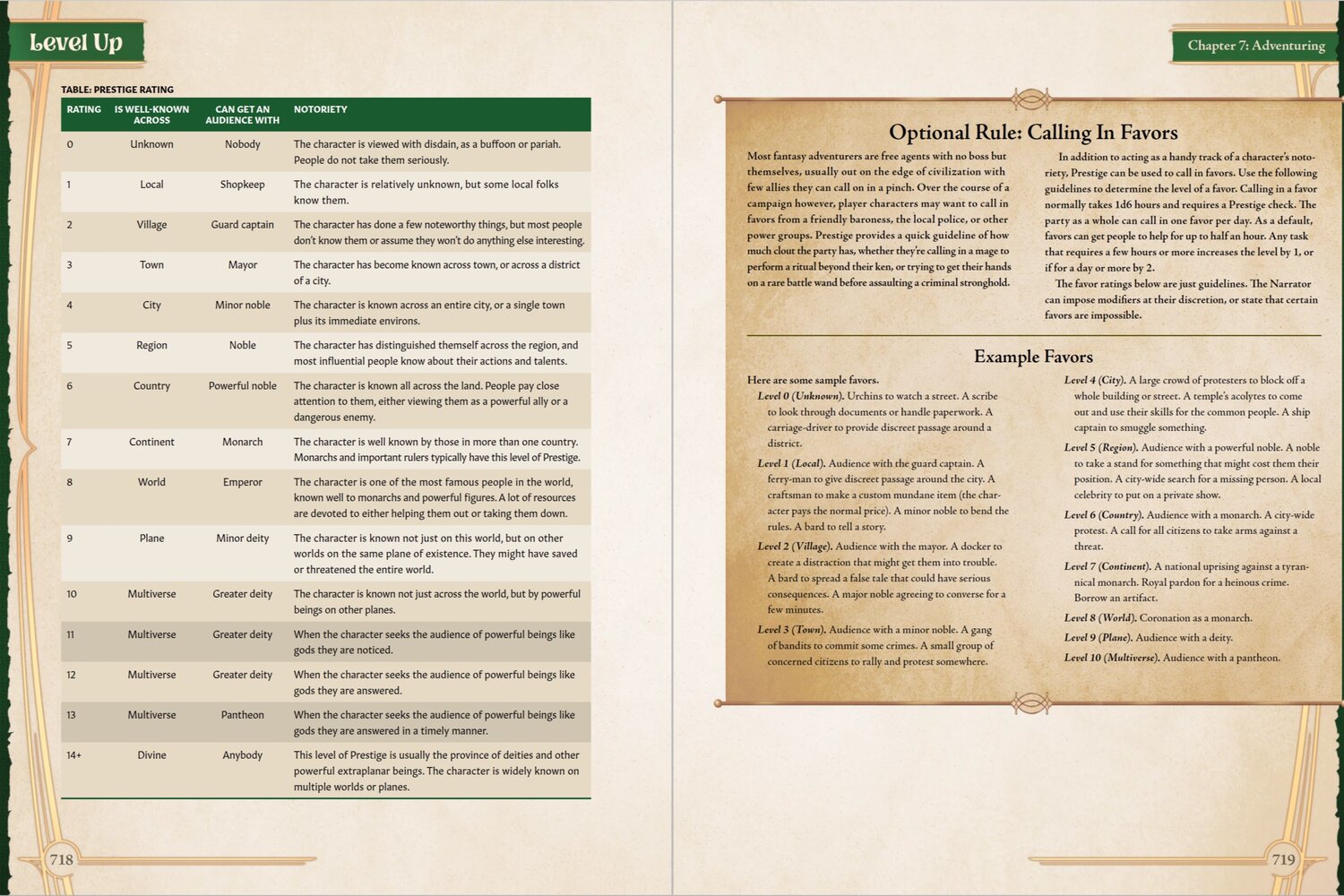Every adventurer in Level Up: Advanced 5th Edition has a Prestige rating. Prestige is a rating of how famous (or infamous) a character is. Adventurers start play with a Prestige of 0 and gain Prestige when moving to new tiers of play at levels 5, 11, and 17, when acquiring strongholds, and from accomplishing great deeds during play.

 www.levelup5e.com
www.levelup5e.com


All About Prestige — Level Up: Advanced 5th Edition (A5E)
Prestige is a rating of how famous (or infamous) a character is.

